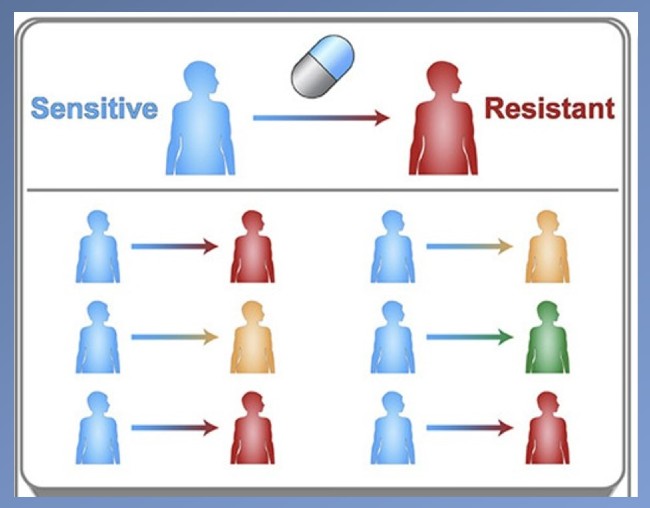For decades, educators have sought better ways to prepare students for a rapidly evolving clinical environment. Now, artificial intelligence (AI) is becoming an important part of the roadmap. AI is leveraging adaptive learning systems, virtual simulations, and predictive analytics to personalize education in ways previously unimaginable.
However, this transformation will not occur in isolation. Of course, AI presents exciting opportunities to evolve the educational landscape, but it also presents equally weighted risks and challenges. In many ways, the success of AI in education depends less on whether the technology exists and more on how it is implemented. With strategic leadership and thoughtful integration, AI has the potential to transform nursing education for the better.
It’s here: use of AI in nursing education
Nursing programs have faced increasing pressure for years: faculty shortages, growing enrollment demands and the need to produce graduates who can handle increasingly complex patient scenarios. Traditional models focused on lectures, flashcards, and static resources struggle to keep up. As a result, students and teachers alike are turning to AI to expand their curricula. As reported in the Digital Education Council Global AI Teacher Survey 2025, The majority (61%) of faculty already include AI in their curriculum, and even more (86%) expect to use AI in the future. It’s clear that AI is advancing education, with or without leadership buy-in.
Specifically in nursing education, AI can offer a revitalized path forward when faculty leverage it to augment their clinical training. By leveraging machine learning and natural language processing, AI can optimize workflows, personalize instruction, and deliver richer clinical training experiences. Integrating AI into nursing education and training presents a unique opportunity to boost workforce readiness and patient safety. But as we implement new technologies and tools in our studies and training, we must take a thoughtful and pragmatic approach.
Key opportunities for the application of AI in nursing education
- Adaptive learning for a smarter education
AI-powered platforms can track how students interact with course content and tailor recommendations to their unique needs. For example, a pharmacology module could not only display a grade, but also identify specific pharmacological categories in which a student demonstrates deficiencies and then generate specific practice questions on demand. In recent years, studies have been correlated adaptive learning with reduced remediation rates and improved NCLEX results, indicating that technology-supported approaches can have a significant impact on student success.
- Immersive clinical simulations
Simulation technology has been shown to be a successful complementary technology to the clinical rotations that nursing students traditionally receive. With Conversational AI and augmented reality, Students can participate in realistic and dynamic scenarios where virtual patients respond to assessment questions, exhibit complex and changing symptoms, and react to care decisions.
These simulations allow students to practice critical thinking in high-risk scenarios, while caring for multiple “patients” without any risk to real people. The AI can even adapt the case based on the students’ actions, offering infinite variations on the same clinical topic or offering exceptionally diverse cases that a student would not otherwise experience in clinical rotations. Additionally, for educators and administrators, these tools are designed to adhere to competency-based educational models, ensuring curriculum alignment.
- Ongoing student support
AI is also changing the way students are supported. AI-powered smart assistants can provide 24/7 answers to course-related questions or remind students of deadlines. This proactive approach can make the difference between retention and attrition, especially in high-stress, accelerated nursing programs. By automating routine queries and offering scalable support, AI can also ease teachers’ workloads, allowing educators to focus on higher-impact teaching and tutoring.
The realities that we cannot ignore
While the advantages of AI in nursing education are compelling, its adoption introduces new risks and complexities. Ignoring them could undermine trust, fairness, and even compliance.
- Academic integrity in the era of generative AI
The reality is, even if your program isn’t an early adopter of AI, your students likely are. Generative AI tools make it easy for students to create essays, care plans, and discussion posts with minimal effort. Without clear guidelines, the line between attendance and academic dishonesty can become blurred. Instructors should collaborate to define the ethical use of AI in academic work and provide educational resources that teach students how to responsibly interact with these tools.
- Know where your data comes from
When it comes to some of the most common complaints surrounding AI, hallucinations and misinformation are some things that cannot be ignored. That’s why it’s key to leverage AI systems that rely on reliable, evidence-based healthcare data that nurses need to train on. Taking advantage of publicly available AI bots can be useful as a guide, but proceed with caution as that information comes from anywhere on the Internet.
- The imperative of equity
AI-enhanced education risks widening the gap between students who have access to robust technology and those who do not. High-speed internet, mobile devices and modern devices are not guaranteed for all students. When carefully applied, AI should reduce, not widen, the opportunity gap. As we implement AI, we should still carefully consider students who may be working with fewer resources and seek to close the gap with solutions or support wherever possible.
Building a roadmap for responsible innovation
AI in nursing education is a major game-changer. The institutions that will succeed with the advent of AI will be those that combine visionary technology adoption with disciplined execution and ethical foresight.
As leaders in nursing education, we have a critical role to play. Here are several principles to guide the journey:
- Start with results, not tools. Examine and select solutions that directly align with educational objectives, from clinical judgment development to NCLEX performance.
- Launch AI initiatives in controlled environments before scaling and use measurable results to justify broader investment.
- Consider, develop and proactively communicate acceptable use policies. 57% of universities They now consider AI a strategic priority, but in direct contrast, less than 40% have a formal acceptable use policy.
- Keep humanity at the center. AI should support the cultivation of critical human skills we will always need in nursing: empathy, critical thinking, and judgment.
Technology does not guarantee transformation, we do
AI gives us the ability to create learning environments that are more responsive, personalized, and effective than ever before. But technology alone cannot guarantee transformation. It is true that successful change requires strategic leadership focused on ethics, equity, and collaboration to ensure that AI strengthens nursing education and benefits our patients.
About Kelly J. Dries, PhD, RN
Kelly J. Dries, PhD, registered nurse, is a nurse educator and transformational leader with over 29 years of experience. Former floor nurse, nursing professor, and Dean of Nursing, now serves as Director of Nursing Program Success at Wolters Kluwerwhere he contributes strategic vision and innovation to the development of academic programs. Dr. Dries has a proven track record in leading diverse nursing programs, optimizing operations, and fostering high-impact, inclusive learning environments.



